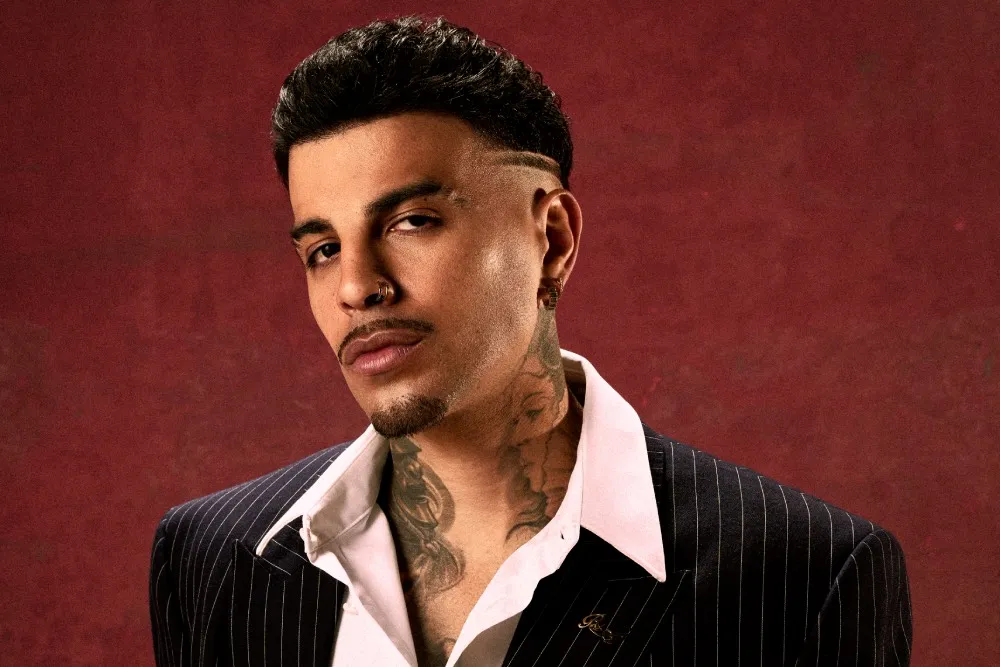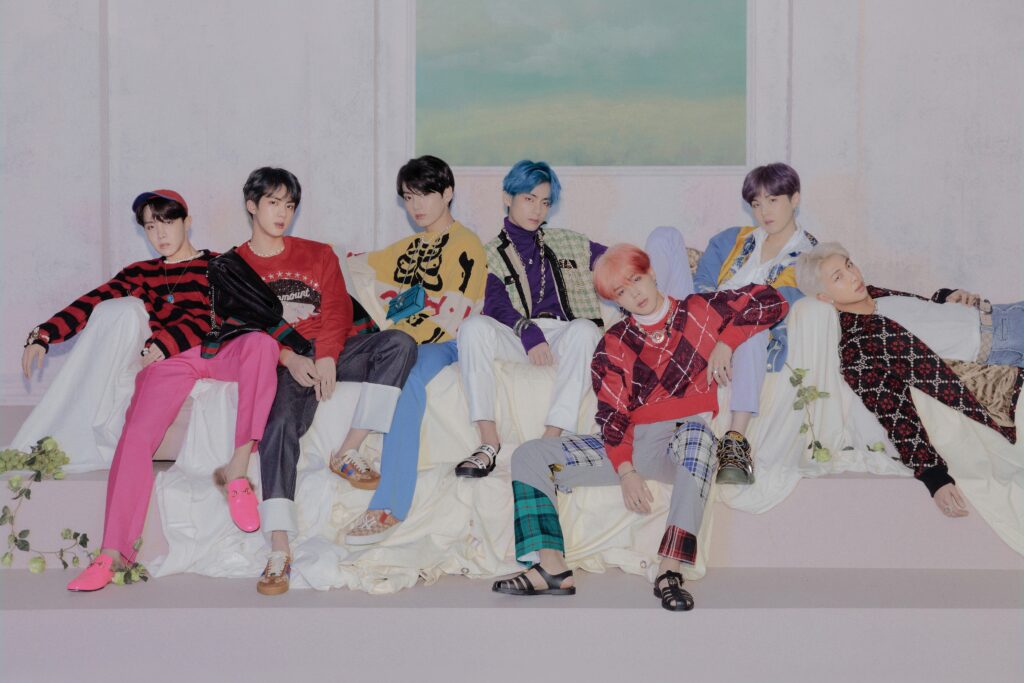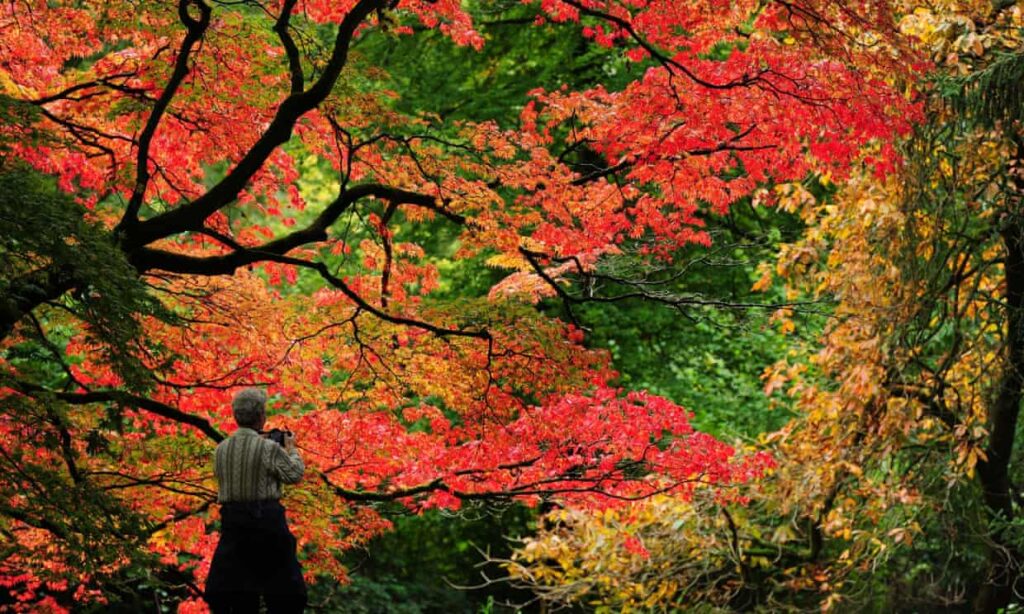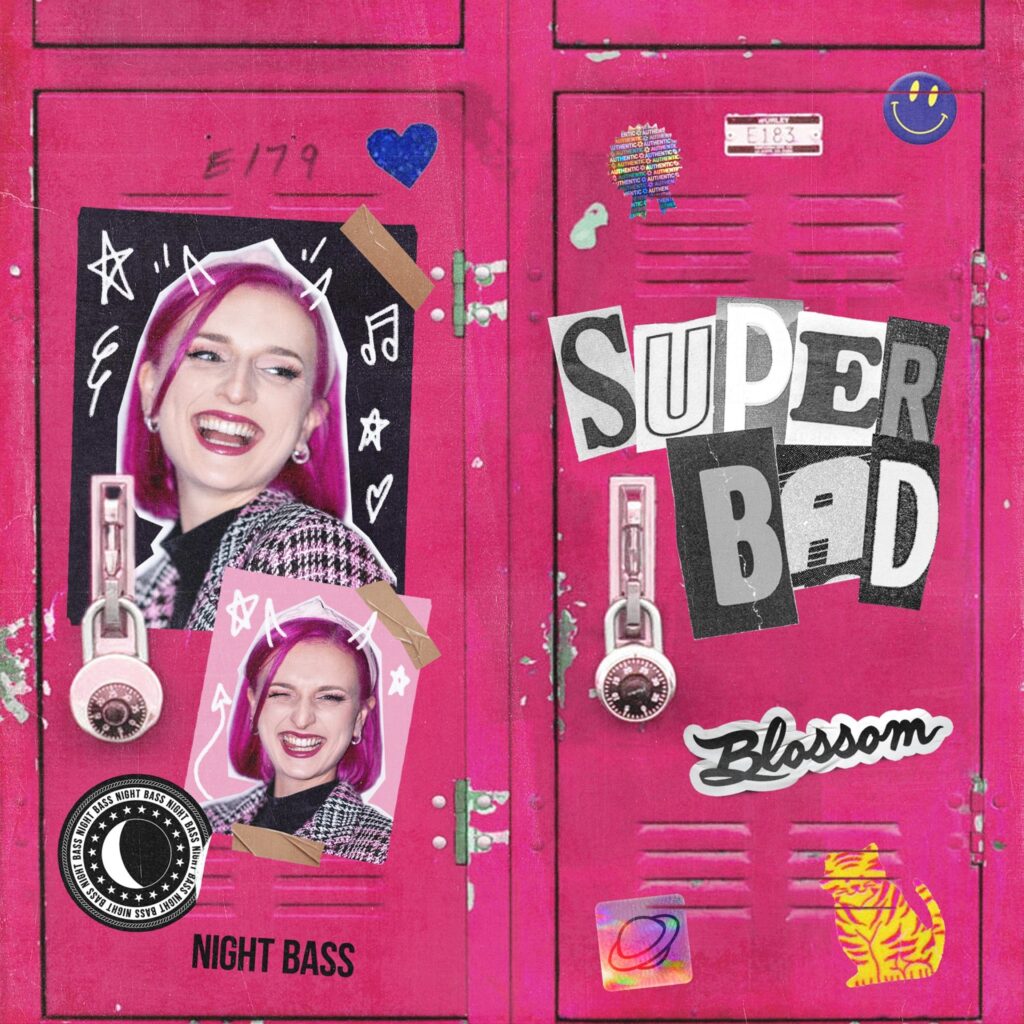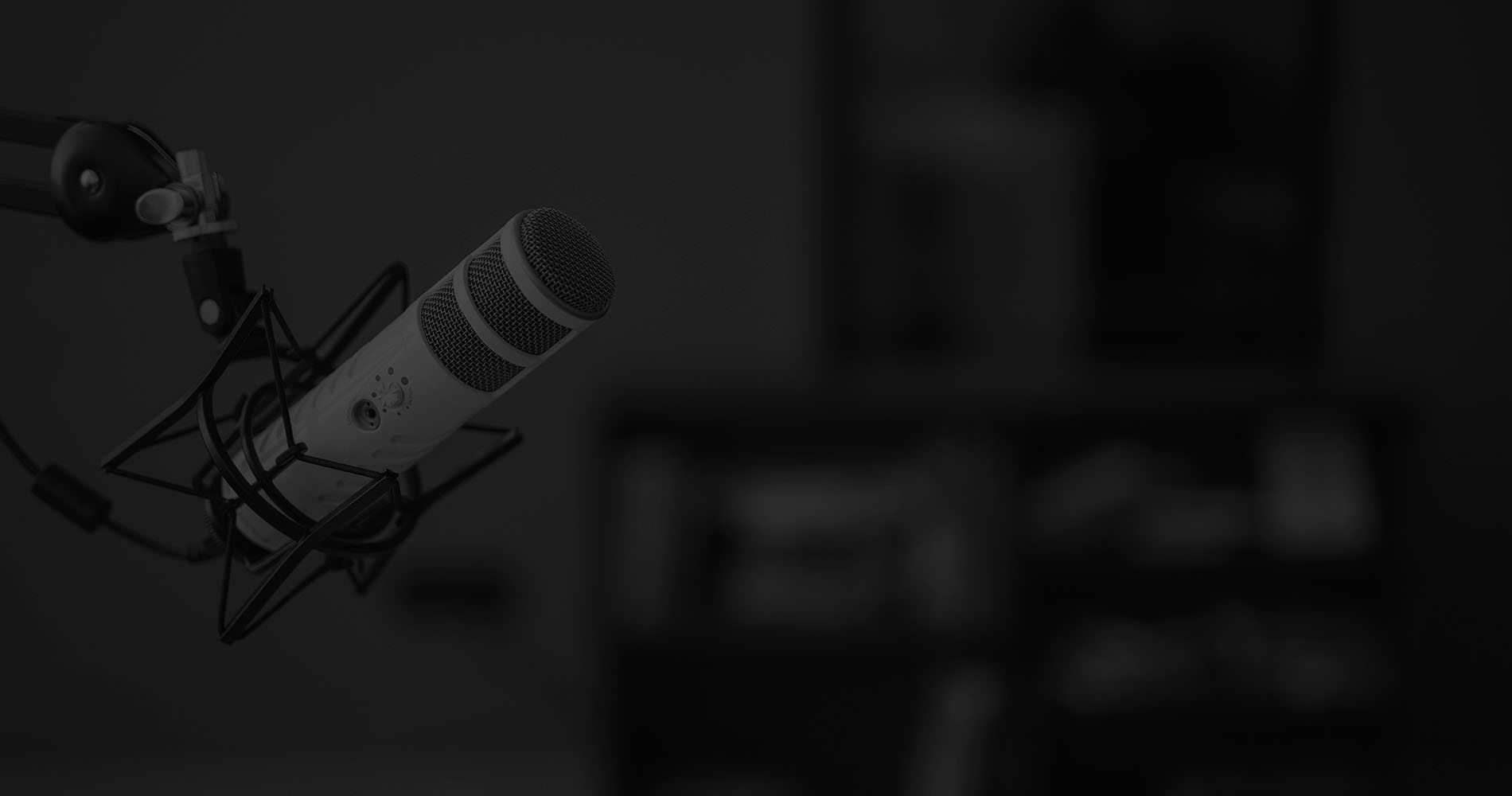ICI C’EST PARIS: Introduction to French Hip-Hop
Written by Clint Nahi on October 4, 2021
You might have seen or heard the slogan “Ici c’est Paris “ somewhere on TV. Well, the famous slogan simply means “This is Paris,“ which derives from the famous French Football club Paris St. Germain. Today’s article, however, will not be discussing French Football but rather French music, specifically: hip hop.
In the American world, Paris is often seen as a fashion capital, the capital of love, or a touristic paradise (Eiffel tower, Le Louvre, Champs Elysée, etc.). What Americans may not know, though, is that the music from the banlieue (French suburbs) plays a crucial role in the culture of the city.
Paris’s urban culture is mainly influenced by immigrants from North and West Africa (Algeria, Tunisia, Morocco, Senegal, Mali, Ivory Coast). These migrants from former French colonies constitute almost 47.5% of immigrants living in France (2020). In the book Black, Blanc, Beur, author Alain-Phillipe Durand establishes the influences of north and west African culture in the uprise of the hip hop scene in Paris in the early 90’s.
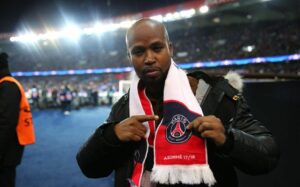
The famous Rapper Rhoff from the 94 district seen repping PSG colors.
Hip-hop was brought by DJ Dee Nasty to Paris in the late ’80s. In the early 1990s, the French government enforced the law “La Loi Toubon” which forced radios to play, at minimum, 40% French music of all the music they played. Consequently, this law launched the French branch of hip-hop into the mainstream. Hip-hop duo Suprême NTM was responsible for popularizing the art across the country and in France’s ex-colonies.
However, MC Solaar was the first rapper to introduce the French scenery to the American public. In 1993, MC Solaar was featured on the Guru‘s classic album JazzMatazz Vol. I on the song “Le Bien, Le Mal“. Subsequently, he went on to sign with the London Acid jazz label Talkin’ Loud. MC Solaar is regarded by far as the greatest lyricist in the Francophonie world.
With more than 350 million Francophiles across the globe, it was inevitable for the French hip-hop scene to play no less than second fiddle to the American market. French academia enforces the use of their language by accentuating heavily on literature and philosophical texts. Consequently, French lyrics predominantly emphasize metaphors, similes, analogies, and double entendre. Also, the use of verlan (language in reverse) from the streets of Paris, adds to the music style.
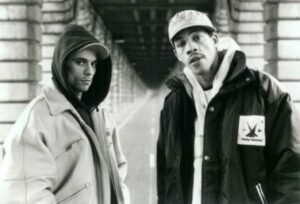
The duo Suprême NTM composed of Kool Shen (left), Joey Starr (right)
The messages often expressed in French hip-hop lyrics tend to highlight racism, social economics issues (life in the banlieue), and African-French politics. You will also often hear French rappers mention in their lyrics their native suburbs or district area code, the French equivalent of American rappers “shouting out” their city. Suburbs such as Sevran, often known as the 93 (city department number), are responsible for revealing top French artist talents such as Suprême NTM, Kaaris, Kalash Criminel, Sofiane, and more.
Other suburbs like the 92 (also known as Boulogne-Billancourt) revealed groups like Lunatic, Les Sages Poètes de la Rue, Booba, 113, Guizmo, and PLK. The 95 (Val d’Oise) revealing Youssoupha, 404Billy, Seth Gueko, etc. One of the biggest groups in the French hip-hop culture is IAM who stems from Marseille, notable southern city of France and perhaps Paris’s greatest rival.
The golden era in French hip hop was the period of 1994 to 2000. This era witnessed classic hip hop albums such as Supreme NTM (self-titled album), Prose Combat (1994) by MC Solaar, École du Micro d’Argent (1998) by IAM, Opera Puccino (1998) by Oxmo Puccino, and Premiere Consultation (1996) by Doc Gynéco. In my opinion, 1998 witnessed the best year to date in French hip hop.
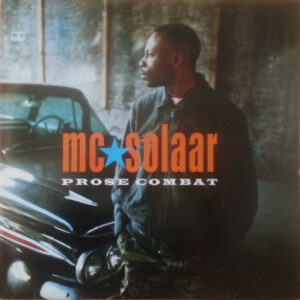
MC Solaar ‘s Album Prose Combat (1994)
The past decade saw the emergence of French-speaking cities and countries (namely Lyon, Lille, Belgium, and Switzerland) into the French hip-hop scene. Ultimately, though, the new generation of rappers like Alpha Wann, Nekfeu, Kalash Criminel, Ninho, and Maître Gims are still upholding the Parisian musical tradition.
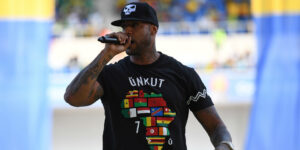
Booba, arguably the most influential rapper in the French game
Below are two Apple Music playlists links to the genre, should you like to look into French music for yourself. Enjoy!
